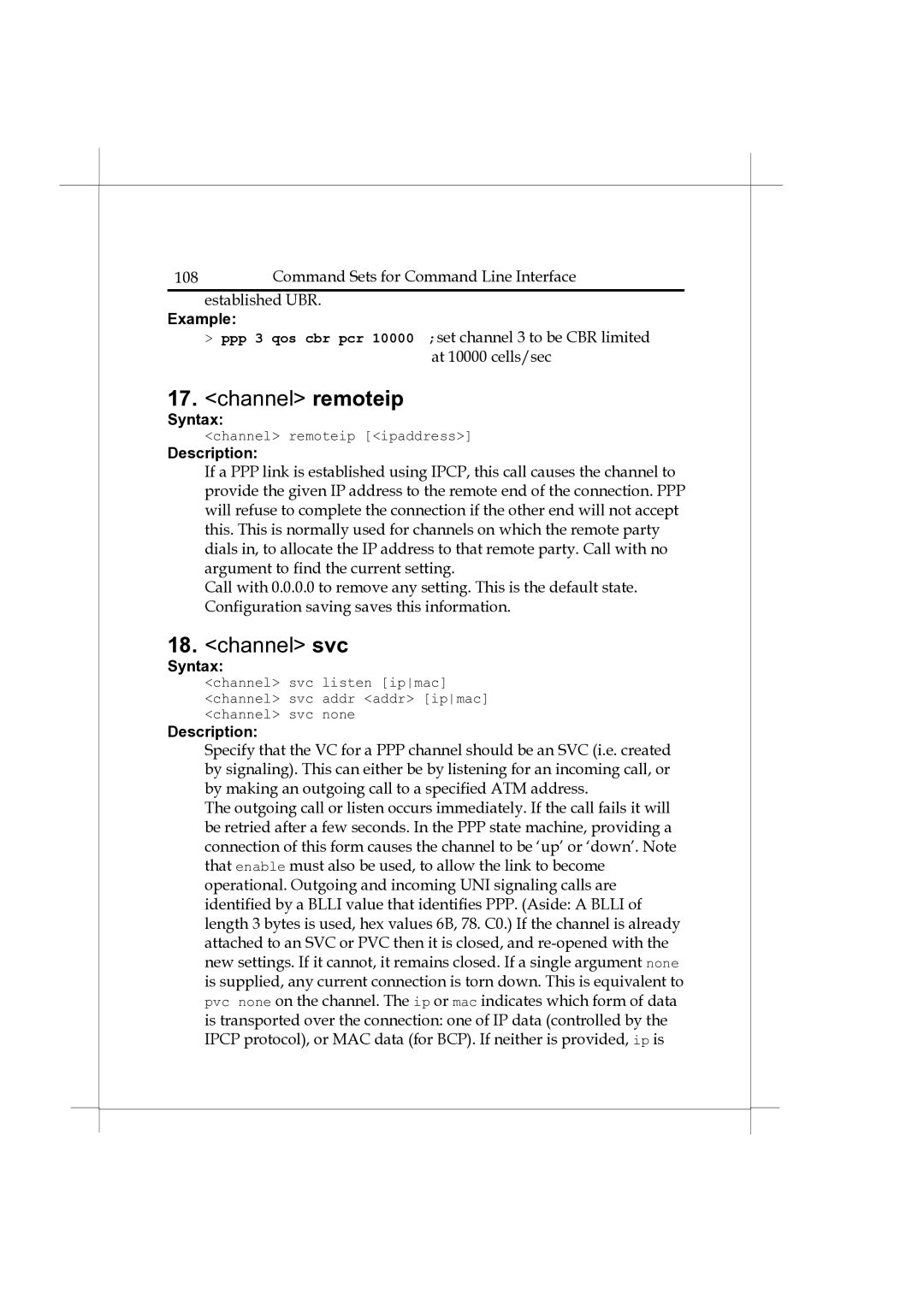
108 | Command Sets for Command Line Interface |
established UBR.
Example:
>ppp 3 qos cbr pcr 10000 ;set channel 3 to be CBR limited at 10000 cells/sec
17.<channel> remoteip
Syntax:
<channel> remoteip [<ipaddress>]
Description:
If a PPP link is established using IPCP, this call causes the channel to provide the given IP address to the remote end of the connection. PPP will refuse to complete the connection if the other end will not accept this. This is normally used for channels on which the remote party dials in, to allocate the IP address to that remote party. Call with no argument to find the current setting.
Call with 0.0.0.0 to remove any setting. This is the default state. Configuration saving saves this information.
18.<channel> svc
Syntax:
<channel> svc listen [ipmac] <channel> svc addr <addr> [ipmac] <channel> svc none
Description:
Specify that the VC for a PPP channel should be an SVC (i.e. created by signaling). This can either be by listening for an incoming call, or by making an outgoing call to a specified ATM address.
The outgoing call or listen occurs immediately. If the call fails it will be retried after a few seconds. In the PPP state machine, providing a connection of this form causes the channel to be ‘up’ or ‘down’. Note that enable must also be used, to allow the link to become operational. Outgoing and incoming UNI signaling calls are identified by a BLLI value that identifies PPP. (Aside: A BLLI of length 3 bytes is used, hex values 6B, 78. C0.) If the channel is already attached to an SVC or PVC then it is closed, and
